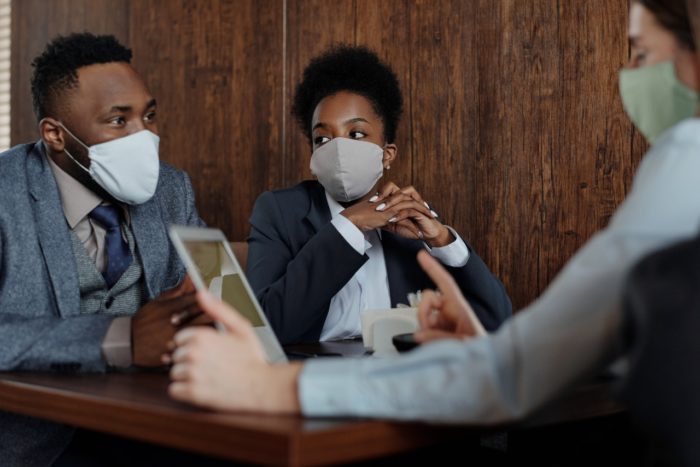
Infectious disease outbreaks happen around the world on a regular basis. And with a mobile society constantly on the move, even diseases specific to a geographic area can spread anywhere.
In light of the recent Coronavirus outbreak, this topic is even more relevant today. At this time, CDC officials report that the Coronavirus will likely cause significant disruption in the U.S. They note that “now is the time for hospitals, schools, and everyday people to begin preparing.”
Unfortunately, with the threat of disease often also comes fear. Due to a surplus of information (both true and unfounded), people are left to fear the worst. So as awareness and the risk of spreading diseases like the Coronavirus increase, how should employers take action in their places of work?
Companies vs. Coronavirus
When we consider other communicable diseases (e.g. the flu) we know how to respond. So why do we suddenly become paralyzed by a new pandemic ailment? All too often, this is due to lack of knowledge.
When there’s an outbreak, it’s important to communicate accurate information to employees. For example, the disease’s risks, measures being taken to mitigate them, and how your existing policies work with the current situation. Additionally, you should express your company’s concern for the well-being of your workforce.
As an employer, you want to put your employees at ease, but also protect yourself from any potential risk. Below are answers to a few questions our team has answered around current and past infectious disease outbreaks.
Employer Liability
What are a company’s concerns, rights, and responsibilities if an employee traveled to an area where there has been an infectious disease outbreak and is now back at work?
Employers have a general duty to protect employees from recognized hazards in the workplace. The Occupational Safety and Health Administration (OSHA) requires employers to provide a place of employment that is “free from recognized hazards that are causing or are likely to cause death or serious physical harm.”
However, it’s rarely necessary to keep asymptomatic employees out of work following travel to an area affected by an infectious disease outbreak. During the Ebola outbreak of 2014, the CDC instead recommended specific precautions for employers. For example, they encouraged people to monitor their health for 21 days following potential exposure.
Action Steps
During an infectious disease outbreak, most employers likely do not need to take any specific actions. Unless the government outlines a different strategy, here are a few general steps you can take:
- Stay calm. Educate employees about how the disease is spread, symptoms, and best practices to avoid transmission.
- Encourage employees to self-report any potential symptoms. (Either for themselves or family members who have recently returned from one of the affected areas.) Additionally, advise them to request the use of PTO, sick leave, or a leave of absence if symptoms develop.
- Establish an emergency preparedness plan that includes reporting procedures, communication plans, and medical options.
CDC Recommendation
The CDC website generally recommends specific precautions for people traveling to an area affected by a current infectious disease outbreak. They also encourage people to monitor their health following potential exposure. If you remain concerned about potential exposure and liability, we recommend consulting legal counsel for definitive guidance and risk assessment.
Handbook Policies
With the Coronavirus scare, what should we make sure we include in a policy to minimize health risks from employees coming into work while sick?
The degree of simplicity or detail in your policy related to employee illness is ultimately up to you. However, most employer policies contain:
- A statement that employees should not come to work if they have been diagnosed with a contagious disease, experience certain symptoms, or have reason to believe they have been exposed;
- Procedures for notifying appropriate personnel of the absence;
- An outline of the process (if applicable) to work remotely; and
- Procedures for notifying appropriate personnel and completing any medical certifications required to return to work.
As with any policy, you’ll want to make sure it complies with relevant statutes in your industry and state prior to implementation. In particular, if you’re in a state with statutory sick leave, you may not be able to follow your normal call-out procedures (e.g., advance notice or finding a replacement for their shift).
What do you think?
As an employer, how do you handle infectious diseases at your business? In light of the Coronavirus outbreak, let us know if you need any guidance on how this impacts your work. And don’t forget to follow us out on Facebook, Twitter, and LinkedIn for even more business tips & tricks!
Photo by August de Richelieu from Pexels
